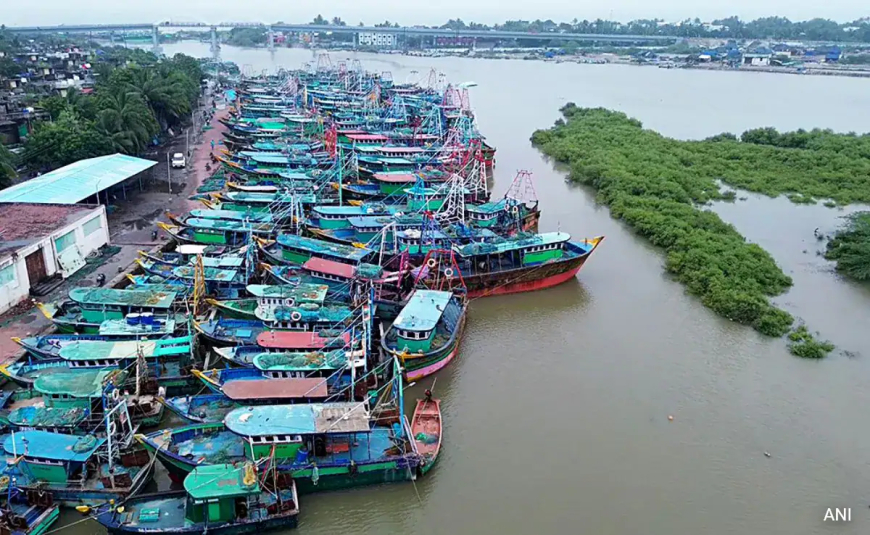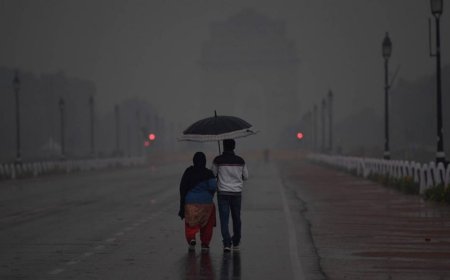Chennai Airport Closed, Train Services Affected as Cyclone Fengal Strengthens: 10 Key Updates
Cyclone Fengal’s intensification has caused the shutdown of Chennai Airport and disruptions in train schedules. Read the latest updates, key details, and safety measures surrounding this developing weather event.

Chennai Airport Closed, Train Services Disrupted as Cyclone Fengal Intensifies – 10 Key Highlights
Cyclone Fengal has brought life to a standstill in Chennai and nearby areas, creating widespread disruption. From airport closures to affected train services, the city is grappling with the impact of this powerful storm. Below are the most crucial updates on Cyclone Fengal and its ongoing effects on transportation, weather conditions, and safety measures.
1. Chennai Airport Temporarily Closed
- Operations at Chennai Airport have been completely suspended due to strong winds and heavy rainfall caused by Cyclone Fengal.
- All inbound and outbound flights have been delayed or canceled as a precautionary measure to ensure passenger safety.
- Authorities have issued advisories urging travelers to check with airlines for updates on rescheduled flights.
2. Train Services Severely Affected
- Numerous train routes passing through Tamil Nadu have been delayed or canceled due to flooding and storm-related damage.
- Passengers are advised to monitor official railway notifications for updates on train schedules.
- Emergency repair teams are working to restore tracks and clear debris to resume services as soon as possible.
3. Cyclone’s Strength Increases
- Cyclone Fengal has intensified over the Bay of Bengal, moving closer to Tamil Nadu’s coastal regions.
- The storm is categorized as a severe cyclonic storm, with wind speeds exceeding 100 kilometers per hour.
- Experts predict heavy rainfall and strong winds to continue over the next 48 hours in Chennai and neighboring districts.
4. Impact on Coastal Areas
- Low-lying regions along the coast have reported waterlogging and flooding, leading to the evacuation of several families.
- Fishermen have been advised to stay away from the sea until further notice.
- The Indian Meteorological Department (IMD) has issued a red alert for coastal districts, emphasizing the need for heightened caution.
5. Electricity and Communication Disruptions
- Power outages have been reported in several parts of Chennai due to strong winds damaging power lines.
- Communication networks have also been disrupted in some areas, making it difficult for residents to reach out for assistance.
- Local authorities are working to restore essential services while prioritizing public safety.
6. Evacuations and Relief Measures
- The state government has set up relief shelters for those displaced by the storm, providing food, water, and medical aid.
- Over 10,000 people from vulnerable areas have been evacuated to safer locations.
- Disaster response teams are actively working to assist residents and address emergency situations.
7. Advisories for Residents
- Authorities have urged people to stay indoors and avoid unnecessary travel until the cyclone subsides.
- Residents are advised to stock up on essential supplies, including food, water, and medications.
- The government has provided emergency helpline numbers for those in need of immediate assistance.
8. Schools and Offices Remain Shut
- Schools, colleges, and offices across Chennai and nearby districts have been closed to ensure public safety.
- Businesses are encouraged to allow employees to work from home where possible.
- Public transportation services, including buses, have been scaled back due to safety concerns.
9. Widespread Rainfall Predicted
- The IMD has forecasted extremely heavy rainfall across Tamil Nadu, Andhra Pradesh, and parts of Karnataka.
- Flash flooding in urban areas is a major concern, with emergency teams on standby to address potential crises.
- Rivers and reservoirs in affected areas are being closely monitored to prevent overflow and breaches.
10. Government’s Efforts to Minimize Impact
- The state government is coordinating with the National Disaster Response Force (NDRF) to handle the situation effectively.
- Relief funds and resources have been allocated to ensure quick recovery and support for affected regions.
- Continuous updates are being shared via local news channels and social media to keep residents informed.
Conclusion
Cyclone Fengal has disrupted daily life in Chennai, forcing residents to adapt to challenging conditions. From airport closures and train cancellations to flooding and power outages, the storm’s impact is widespread. However, proactive measures by the government and disaster response teams aim to minimize its effects and ensure public safety.
Residents are encouraged to stay updated on weather alerts and follow safety guidelines during this time. As the situation unfolds, we hope for the safety and well-being of everyone affected by Cyclone Fengal.
What's Your Reaction?



















































